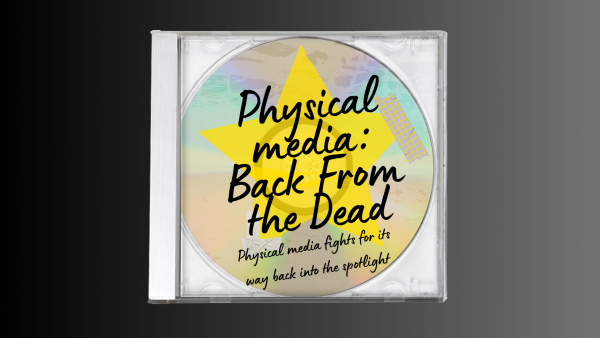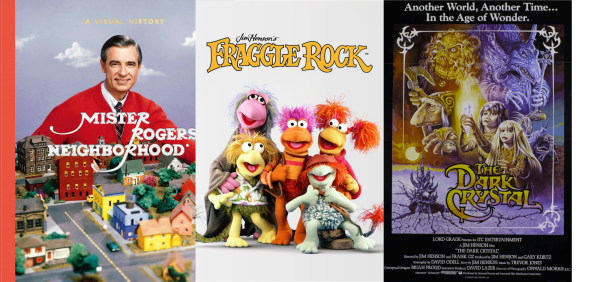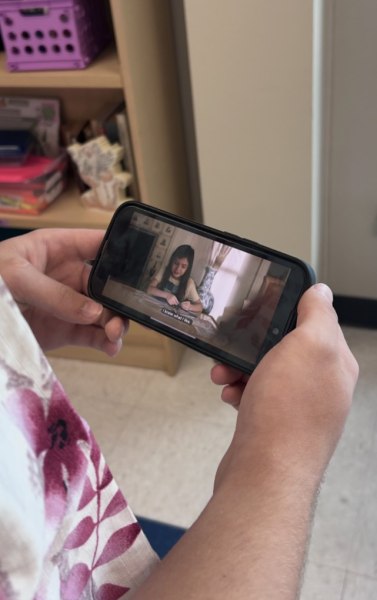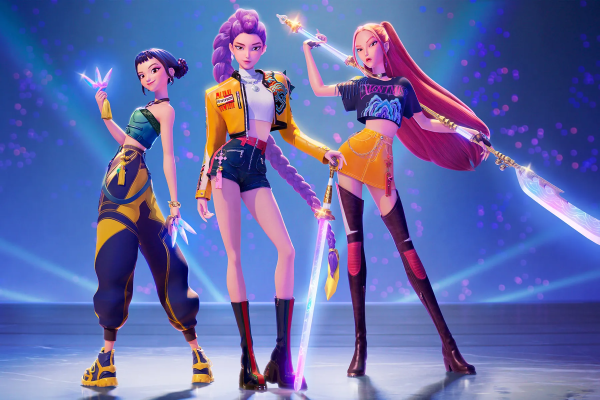Four Best Books of February
Despite reading more books in January, this month presented more challenges when it came to picking what deserved to be recognized. Everything I read this month was enjoyable, and my reading spanned several decades and mediums– I decided to expand the amount of graphic novels I’d read. In compiling this list, I tried not only to consider how much I enjoyed the story, but also how excited I got to return to the story and if I find myself still thinking about it. As per last month, there will be a plot description and quick review, and the books are ranked from ‘very good’ to ‘extremely good.’
- “True Biz: A Novel” by Sara Nović
Titled after a phrase in American Sign Language (ASL) meaning ‘real talk’, “True Biz” is the story of three vastly different people whose lives intersect when they meet at the River Valley School for the Deaf. There is Charlie, a young deaf teenager who has been isolated from ASL and Deaf Culture by her parents, and finds her cochlear implant increasingly troublesome; there is Austin, who grew up in a multi-generational Deaf family but whose baby sister is born hearing; lastly, there is February, a child of deaf adults (CODA) who serves as the headmistress of River Valley and is facing the inevitability of its closure at the end of the school year. The three’s personal struggles are compounded by external threats to their cultural identities, and the further into the school year they get, the more interlocked their personal journeys become.  “True Biz” is a perfect example of the beauty of multi-perspective books. By individually exploring the desires, experiences, and personalities of separate characters, Nović gives the reader greater insight into the protagonists, and draws a rich picture of an overlooked community. Nović does not shy away from presenting the daily hardships faced by the Deaf community, nor does she shy away from the history of segregation and discrimination within the Deaf community, but she celebrates the beauty of connection and ASL as its own language. Just like the communities they are a part of, the characters of the novel grow and continue to change, leaving the audience hopeful for their futures.
“True Biz” is a perfect example of the beauty of multi-perspective books. By individually exploring the desires, experiences, and personalities of separate characters, Nović gives the reader greater insight into the protagonists, and draws a rich picture of an overlooked community. Nović does not shy away from presenting the daily hardships faced by the Deaf community, nor does she shy away from the history of segregation and discrimination within the Deaf community, but she celebrates the beauty of connection and ASL as its own language. Just like the communities they are a part of, the characters of the novel grow and continue to change, leaving the audience hopeful for their futures.
9/10 would discover the joy of communicating again
- “The Jungle” by Upton Sinclair
Remembered primarily for its impact on the meat industry and working conditions in factories, “The Jungle” is primarily the story of Jurgis, a young Lithuanian immigrant attempting to navigate his new life and dangerous job with the desire to provide for his family. It’s a grisly story that doesn’t shy away from the glaring inequities at the center of its story, nor does it provide escape from the laborious and exhausting conditions of the main characters. It’s at once a testament to the characters’ strength and a reminder of undiscussed struggles.  The term ‘muckraker’ initially referred to journalists willing to fabricate or exaggerate details for the sake of interest, but eventually came to refer to those willing to expose underlying corruption and social problems in society. Sinclair was one of these writers, and “The Jungle” can be seen as both a fictional story about abuse in factory work and the culmination of monthslong research into poor working conditions– more importantly than seeing is understanding that “The Jungle” is both of these things. In this way, Sinclair’s work feels both like a longform expose piece and a longform interview with those affected by what is happening. The blend of personal details with factual writing instills feelings of dread, disgust, and desire for change within the audience. A century later, Sinclair’s work remains relevant and prescient.
The term ‘muckraker’ initially referred to journalists willing to fabricate or exaggerate details for the sake of interest, but eventually came to refer to those willing to expose underlying corruption and social problems in society. Sinclair was one of these writers, and “The Jungle” can be seen as both a fictional story about abuse in factory work and the culmination of monthslong research into poor working conditions– more importantly than seeing is understanding that “The Jungle” is both of these things. In this way, Sinclair’s work feels both like a longform expose piece and a longform interview with those affected by what is happening. The blend of personal details with factual writing instills feelings of dread, disgust, and desire for change within the audience. A century later, Sinclair’s work remains relevant and prescient.
9.5/10 would be disturbed again
- “All Our Missing Hearts” by Celeste Ng
The most recent novel by “Little Fires Everywhere” and “Everything I Never Told You” author Ng, “All Our Missing Hearts” defies genre to explore themes of nationalism, blind-patriotism, and the way the government weaponizes discrimination. Set in a dystopian (but recognizable) incarnation of the United States, Ng’s work follows Bird (Noah) Gardner as he attempts to find his mother Margaret Miu. In this world, the government has passed legislation to protect ‘American ideals’ by legally enforcing patriotism and encouraging citizens to police one another. At the center of these laws is the US’ continued conflict with China, which has led to normalized and government-endorsed hate-crimes towards Asian-Americans. Bird faces discrimination because of his Chinese-American heritage, and finds himself the subject of greater scrutiny because of his mother, Margaret, a prolific poet whose works centered on her identity as a Chinese-American woman. As Bird attempts to reconnect with his mother, he also finds himself reconnecting with lost parts of his identity and childhood.  While Ng raised questions of colonialism, identity, and power structures in her other works, “All Our Missing Hearts” is the most direct confrontation between the audience and these ideas. Written in an omniscient, but intimate voice, Ng’s writing allows the reader insight into the innermost thoughts of Bird and various characters around him. It’s a deeply personal portrait, one that speaks to both the grief experienced by Bird’s family and the grief experienced by continually wronged communities. It’s impossible to read the sadness without picking up on the anger beneath, seeing the blend of sorrow for a lost cultural identity with fury for those who have taken it. The novel is deeply moving and one that stays with the reader long after they’ve closed the cover.
While Ng raised questions of colonialism, identity, and power structures in her other works, “All Our Missing Hearts” is the most direct confrontation between the audience and these ideas. Written in an omniscient, but intimate voice, Ng’s writing allows the reader insight into the innermost thoughts of Bird and various characters around him. It’s a deeply personal portrait, one that speaks to both the grief experienced by Bird’s family and the grief experienced by continually wronged communities. It’s impossible to read the sadness without picking up on the anger beneath, seeing the blend of sorrow for a lost cultural identity with fury for those who have taken it. The novel is deeply moving and one that stays with the reader long after they’ve closed the cover.
9.5/10 would see the parallels between this world and our world again
- “The Iliad” by Homer
A paragon of classical reading, “The Iliad” is a long-form poem detailing the mortal and godly conflict between Troy and Greece during the Trojan war. Spinning together the stories of warriors, friends, and deities alike, Homer delves into the cost of conflict, the lengths people go to protect their loved ones, and the frailty of humanity compared to the larger world. Despite being the most iconic of the characters, Achilles’ story is one of many in a book spanning years, vast expanses of space, and the gambit of human emotion.  I was anxious to read “The Iliad” out of the fear that I wouldn’t like it or would be disappointed. In addition to having read a few reinterpretations of Homer’s story, I knew “The Iliad” was important from a point of pop culture reference. So, I was excited when I found myself engaged with and interested in the story presented. The wide-range of characters and their various archetypal roles gives the story tension; it’s possible for the audience to see what the characters’ fates will be long before the final part begins. Yet, this understanding of the end doesn’t detract from the journey itself, and it’s impossible to read about these characters without becoming invested in the mundane (and holy) details of their lives. It’s a story I imagine myself returning to and discovering something new in each time.
I was anxious to read “The Iliad” out of the fear that I wouldn’t like it or would be disappointed. In addition to having read a few reinterpretations of Homer’s story, I knew “The Iliad” was important from a point of pop culture reference. So, I was excited when I found myself engaged with and interested in the story presented. The wide-range of characters and their various archetypal roles gives the story tension; it’s possible for the audience to see what the characters’ fates will be long before the final part begins. Yet, this understanding of the end doesn’t detract from the journey itself, and it’s impossible to read about these characters without becoming invested in the mundane (and holy) details of their lives. It’s a story I imagine myself returning to and discovering something new in each time.
10/10 would understand the origins of ‘Achilles’ heel’ again






